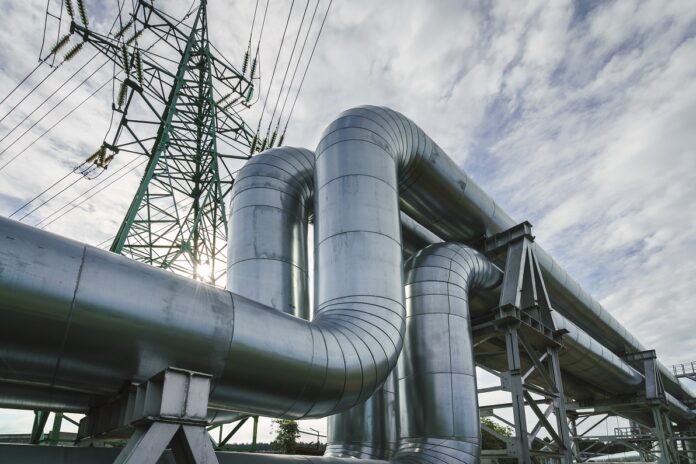The recent Industrial Water Forum, which took place at IWA’s World Water Congress & Exhibition in Toronto, Canada, brought together more than 120 professionals from various sectors of the water industry, including industrial end-users, technology suppliers, regulators, and academia. The event aimed to engage, inspire, and share knowledge on overcoming challenges in water efficiency investments. With industry consuming more than 22% of global water withdrawals, and projections indicating rapid increases in the coming years, the forum’s focus on industrial water use could not have been timelier.
The day was structured into three sessions, covering industry best practices, collaboration with regulators and research institutes, and strategies to overcome long returns on investments in water technologies. A common theme emerged: the critical importance of collaboration across sectors to address current and future water challenges.
Innovation in industrial water management
Several innovative technologies and approaches were highlighted during the forum, demonstrating the potential for significant improvements in industrial water efficiency:
PFAS remediation: Dr Mohamed Ateia Ibrahim, from Rice University, USA, emphasised that there is no one-size-fits-all solution for PFAS remediation. With more than 10,000 chemicals containing PFAS on the market, new technologies are being explored to meet increasingly stringent regulations. The path forward requires collaboration between academia, start-ups, solution providers, and end-users to develop effective strategies for addressing current issues and transitioning to fluorine-free alternatives.
Energy conservation in cooling systems: Alain Silverwood, from Xylem, presented a two-year study on the energy impact of microsand filtration in open cooling water systems. The collaborative effort between academia, solution providers and end-users demonstrated that proper filtration could reduce biofilms and energy consumption by up to 13%, resulting in significant cost savings for industrial facilities.
Resource recovery from waste streams:
Dr Christopher Lawson, from the University of Toronto, Canada, shared insights into a new technology that ‘retools’ anaerobic digestion for waste-to-chemical biomanufacturing. This innovative approach converts food waste into medium chain fatty acids, potentially reducing carbon footprints by recycling chemicals and materials.
Collaboration: The key to success
The forum emphasised that collaboration is crucial for addressing water challenges effectively. This was evident in the organising committee itself, which included representatives from Xylem, Veolia and Grundfos. Throughout the sessions, speakers highlighted successful partnerships between industry, academia and regulatory bodies.
Industry-academia partnerships: The cooling water filtration study and the waste-to-chemical biomanufacturing project both demonstrated the value of collaboration between universities and industry partners. These partnerships allow for rigorous scientific research to be applied to real-world industrial challenges.
Regulatory collaboration: Mohamed Ateia Ibrahim’s presentation on PFAS remediation highlighted the need for cooperation between regulators, researchers and industry, to develop effective solutions that meet increasingly stringent environmental standards.
Cross-sector initiatives: Jason Morrison, President of the Pacific Institute and Head of the UN Global Compact CEO Water Mandate, discussed engagement opportunities that bring together corporate leaders to address water management challenges collectively.
Overcoming barriers to innovation
The forum also addressed the challenges of implementing new water technologies, particularly regarding the ‘valleys of death’ that can occur when transferring solutions from research to industry. The panel discussion in the third session explored strategies to overcome these barriers:
Technology readiness levels: Panellists discussed the importance of understanding and supporting the various stages of technology development, from basic research (Level 1) to successful application (Level 9).
Funding and guidance: Seth Darling, from Argonne National Laboratory, USA, explained how national laboratories provide crucial support to help researchers scale up their investigations.
Regulatory incentives: Regulatory agencies play a role in encouraging technology development by identifying critical water quality issues and promoting energy reduction and resource recovery.
Corporate leadership: The CEO Water Mandate provides a platform for corporate decision-makers to collaborate on finding innovative water management solutions.
Industry investment: Representatives from Veolia, Grundfos and Dow Chemical shared examples of how their companies invest in, and refine, new water treatment technologies for their clients.
The future outlook
The Industrial Water Forum highlighted the growing pressure to accelerate the development and implementation of water-efficient technologies. Despite the challenges, participants expressed optimism about future breakthroughs in industrial water management. Key areas for future focus include:
- Continued development of PFAS remediation technologies and alternatives to ‘forever chemicals’.
- Further exploration of energy-saving technologies in industrial water systems.
- Advancement of resource recovery techniques from waste streams.
- Expansion of nature-based solutions for industrial water management.
- Improved communication and collaboration between researchers, technology developers, regulators, and end-users to streamline the innovation process.
Conclusion
The Industrial Water Forum served as a vital platform for knowledge sharing and collaboration in the face of growing water challenges. By bringing together diverse stakeholders, the event fostered discussions on cutting-edge technologies, best practices, and strategies for overcoming barriers to innovation. As industrial water use continues to increase globally, the insights and connections made during this forum will play a crucial role in shaping a more sustainable and water-efficient industrial future.
Moving forward, continued collaboration across sectors will be essential to drive innovation, overcome implementation challenges, and achieve significant improvements in industrial water efficiency. By building on the momentum generated at this forum, stakeholders in the industrial water sector can work together to develop and implement solutions that address current and future water challenges, ensuring a more sustainable and resilient future for industry and the environment alike.
The authors: Lærke Nørgaard Madsen is a water treatment application specialist at Grundfos; Michael Skovgaard is Business Development Regional Director, Americas, at Grundfos; Walt Kozlowski is Senior Director Industrial Sustainability Solutions at Xylem; and Youngseck Hong is Principal Engineer at Veolia Water Technologies & Solutions








